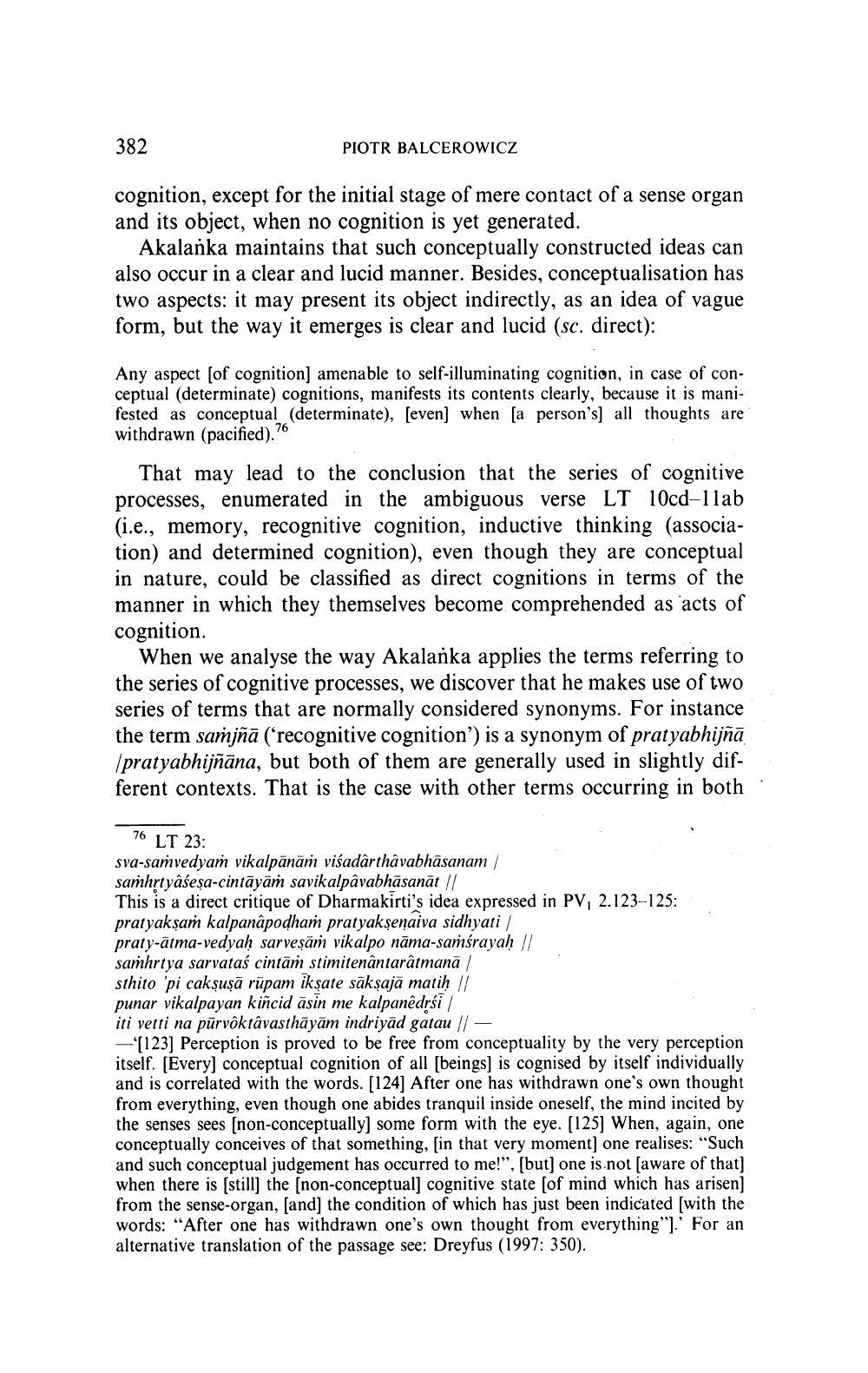________________
382
PIOTR BALCEROWICZ
cognition, except for the initial stage of mere contact of a sense organ and its object, when no cognition is yet generated.
Akalanka maintains that such conceptually constructed ideas can also occur in a clear and lucid manner. Besides, conceptualisation has two aspects: it may present its object indirectly, as an idea of vague form, but the way it emerges is clear and lucid (sc. direct):
Any aspect [of cognition] amenable to self-illuminating cognition, in case of conceptual (determinate) cognitions, manifests its contents clearly, because it is manifested as conceptual (determinate), [even] when [a person's] all thoughts are withdrawn (pacified).
76
That may lead to the conclusion that the series of cognitive processes, enumerated in the ambiguous verse LT 10cd-11ab (i.e., memory, recognitive cognition, inductive thinking (association) and determined cognition), even though they are conceptual in nature, could be classified as direct cognitions in terms of the manner in which they themselves become comprehended as acts of cognition.
When we analyse the way Akalanka applies the terms referring to the series of cognitive processes, we discover that he makes use of two series of terms that are normally considered synonyms. For instance the term samjñā (recognitive cognition') is a synonym of pratyabhijñā pratyabhijñāna, but both of them are generally used in slightly different contexts. That is the case with other terms occurring in both
76 LT 23:
sva-samvedyam vikalpānāṁ visadar thâvabhāsanam | samhṛtyâseṣa-cintayām savikalpâvabhāsanāt ||
This is a direct critique of Dharmakirti's idea expressed in PV, 2.123-125: pratyakşam kalpanapodham pratyakṣenaiva sidhyati / praty-atma-vedyaḥ sarveṣam vikalpo nama-samśrayaḥ || samhrtya sarvatas cintam stimitenântarâtmanā /
sthito 'pi cakṣuṣā rūpam ikṣate sākṣajā matiḥ ||
punar vikalpayan kiñcid asin me kalpanêdrsi /
iti vetti na pūrvôktâvasthāyām indriyad gatau || -
-[123] Perception is proved to be free from conceptuality by the very perception itself. [Every] conceptual cognition of all [beings] is cognised by itself individually and is correlated with the words. [124] After one has withdrawn one's own thought from everything, even though one abides tranquil inside oneself, the mind incited by the senses sees [non-conceptually] some form with the eye. [125] When, again, one conceptually conceives of that something, [in that very moment] one realises: "Such and such conceptual judgement has occurred to me!", [but] one is not [aware of that] when there is [still] the [non-conceptual] cognitive state [of mind which has arisen] from the sense-organ, [and] the condition of which has just been indicated [with the words: "After one has withdrawn one's own thought from everything"].' For an alternative translation of the passage see: Dreyfus (1997: 350).




